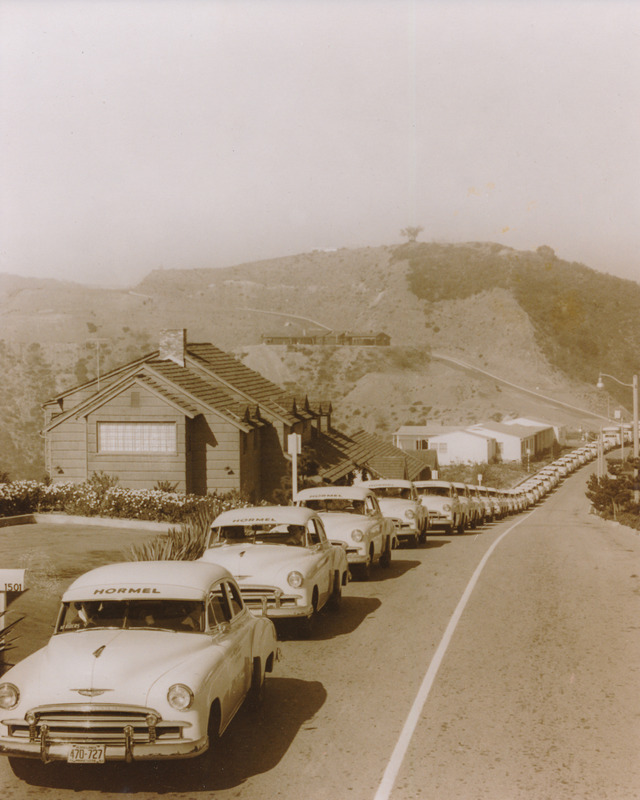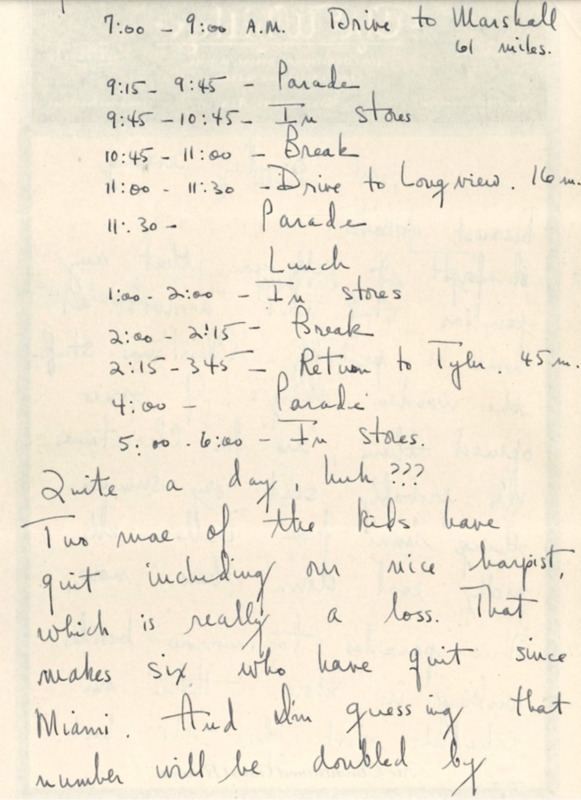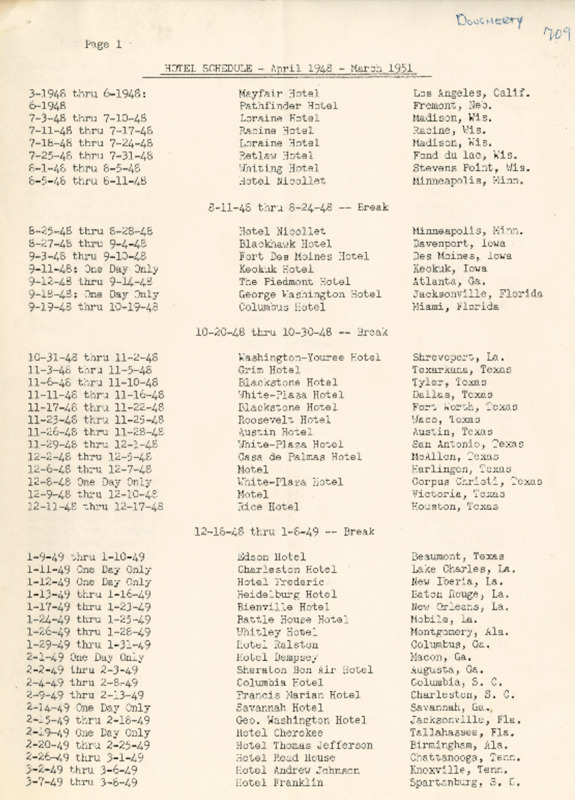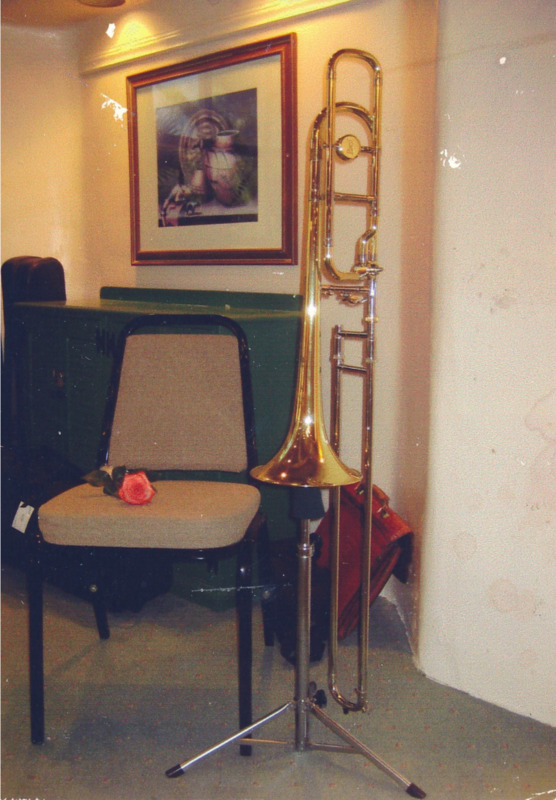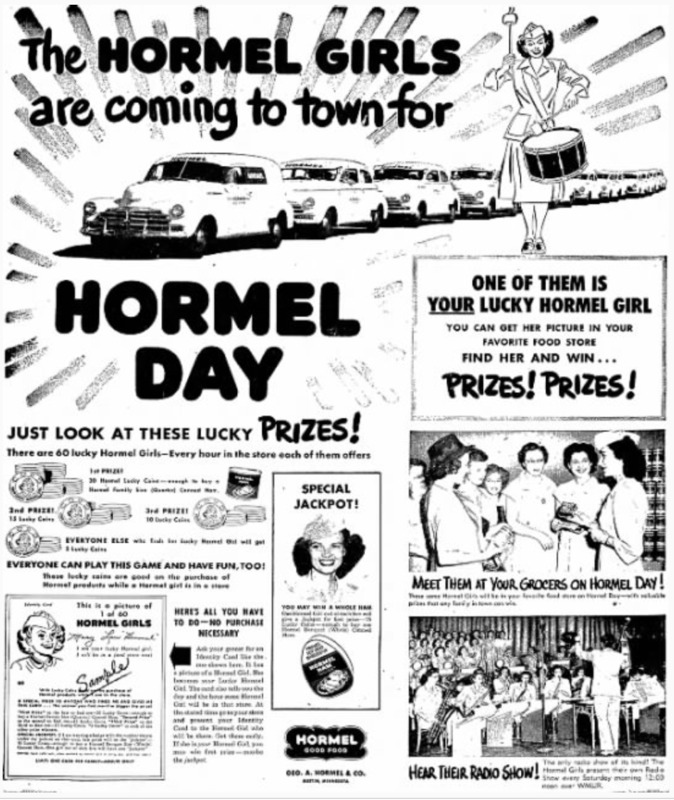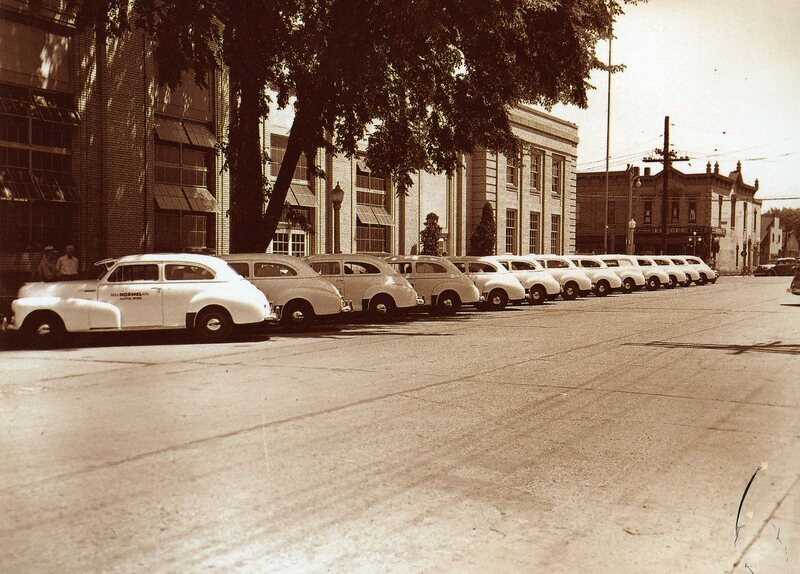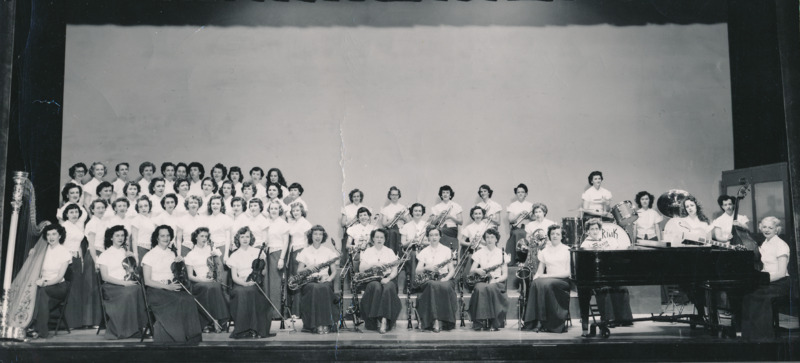Life on the Road: the correspondence of Eleanor Jones
Eleanor Jones’ years travelling with the Hormel Girls were filled with countless new experiences as the troupe toured bustling metropolises and small towns across the US. Coming from rural Holcombe, Wisconsin, it was quite a change, and Eleanor filled her letters home with eager descriptions of life in the big cities.
This foundational period for Eleanor is marked by her becoming accustomed to the changes around her. She explains with great enthusiasm and detail how the Hormel Company provided lavish meals, and offered to buy each group member any make of instrument they wanted for their shows. These were certainly perks, but Eleanor's coorespondence also reveals how the touring schedule they followed could be hectic and inconsistent.
In 1946, Eleanor completed her initial training for the Hormel Band in New York City, and was quickly offered a full-time spot on the tour. She was initially hesitant about joining full time, telling her parents “I really don't know what answer to give”.
Already missing her life and family at home, Eleanor was unsure about her role with the Hormel Girls. But in the end, she made the decision to take Mr. Hormel up on the offer to join the traveling troupe.
From the road, Eleanor wrote often to her family, updating them frequently despite her constantly-changing schedule. Being away from home was new for Eleanor, and her strong relationship with her parents made staying in contact all the more important.
Eleanor's letters from the road reveal how workdays and schedules for the Hormel Girls often changed. One week might require constant practice for broadcasts and back-to-back shows, while the next would provide more breaks for sightseeing while still requiring the girls to meet quotas selling products door-to-door and in stores. This unpredictability was especially difficult for Eleanor early on. Shortly after joing the group and after the third straight day of selling products in stores, Eleanor wrote about looking forward to getting to the next city to get back to playing music.
Music was something very near and dear to Eleanor's heart, ever since her father, Les Jones, had taught her to play trombone at a young age. During her military service, Eleanor continued playing music after joining the U.S. Marine Corps Women’s Reserve Band in 1943. For her work with the Hormel Girls, Eleanor treasured the time the troupe could perform for audiences and on the radio.
Other aspects of the job were less appealing, as Eleanor recounted in a 1947 letter to her parents, noting that the marketing work the women were doing was draining, and left them with little to no time to rest or explore the places they visited.
Eleanor would soon grow accustomed to life on the road, and embraced the opportunity to experience as much as she could. In 1948, she met Grace Shipley in Los Angeles at a Hormel Girls' training, and the two would travel together with the troupe over the next nine months. While Grace chose to leave Hormel shortly afterwards, the women remained in close ontact and even spent some of their time off together traveling the U.S. and Europe.
During her time traveling with the group, Eleanor had many great experiences, often writing to describe the new places she traveled and how different they were from small-town Wisconsin. While in New York City for shows, Eleanor marveled at the celebrity-like treatment the Hormel Girls were receiving. They spent their days off in the Big Apple sightseeing in buses with glass roofs and were even welcomed by the mayor. And to Eleanor's astonishment, Mr. Hormel had provided $1000—equivenlent to $13,000 today—for their stay in the city.
"We were told yesterday by the Chief of Police that anytime we miss a bus and it's at all near eleven not to bother with a cab—just hail a squad car and they'll rush us right home. The whole thing is just too fantastic."
- Eleanor on her experiences in New York City, 1947
The Hormel Girls offered Eleanor an opportunity to experience new foods, travel, and meet new people. “Golly what a leisurely life we’re leading now…” Eleanor excitedly wrote in one letter to her parents.
Although the schedule was admitedly grueling, Eleanor clearly saw traveling with the Hormel Girls as a once-in-a-lifetime expereince, and she was ready to gain the most from the opportunities in front of her.
While Eleanor toured the country with the Hormel Girls her parents often mailed her different kinds of clothing depending on where the group was touring. This is evident in coorespondence where Eleanor requests bathing suits while in Miami, or warm clothing when the Girls toured far northern states. At one point, Eleanor lost her driver’s license—something essential for her to drive in the touring caravan—but her constant connection with her parents meant they were able to quickly send her a new one.
“When an envelope comes for me from the Motor Vehicle Dept. will you please forward it airmail at once? I lost my driver’s license and, of course, I need it all the time.”
-Eleanor Jones to her parents, 1948
The correspondence between Eleanor and her parents was often sporadic, as the Hormel Girls traveled from place to place. Although communication wasn't consistent, it likely helped to soothe any homesickness Eleanor may have felt, which was evident in a 1947 letter to her parents where she noted, "I’m getting so anxious to get home.”
Eleanor’s parents were able to support Eleanor by sending her clothing or other items she needed, and communicating with her by mail and phone. Being able to receive emotional and material support from her parents was essential to Eleanor’s success on the road with the Hormel Girls.

